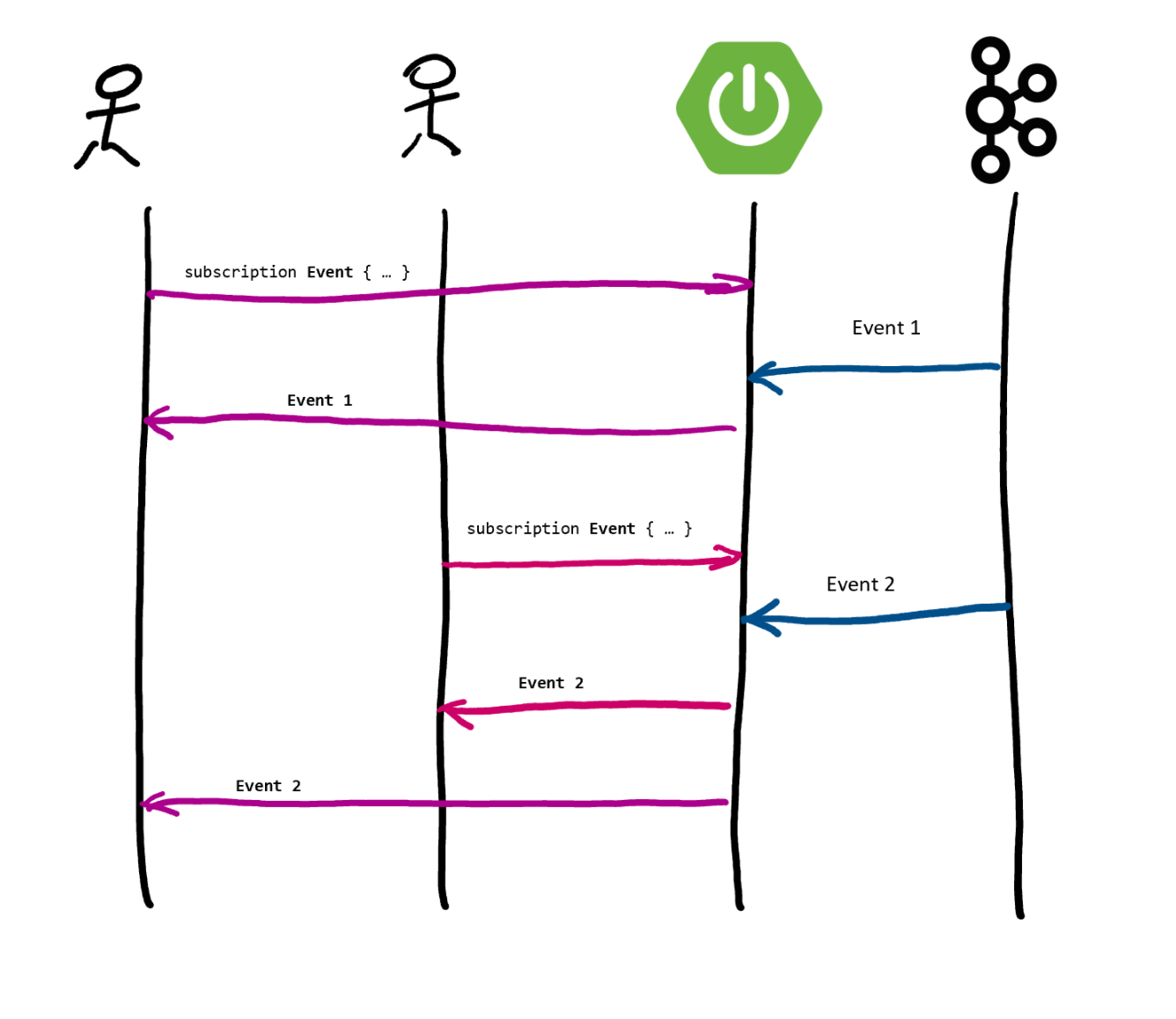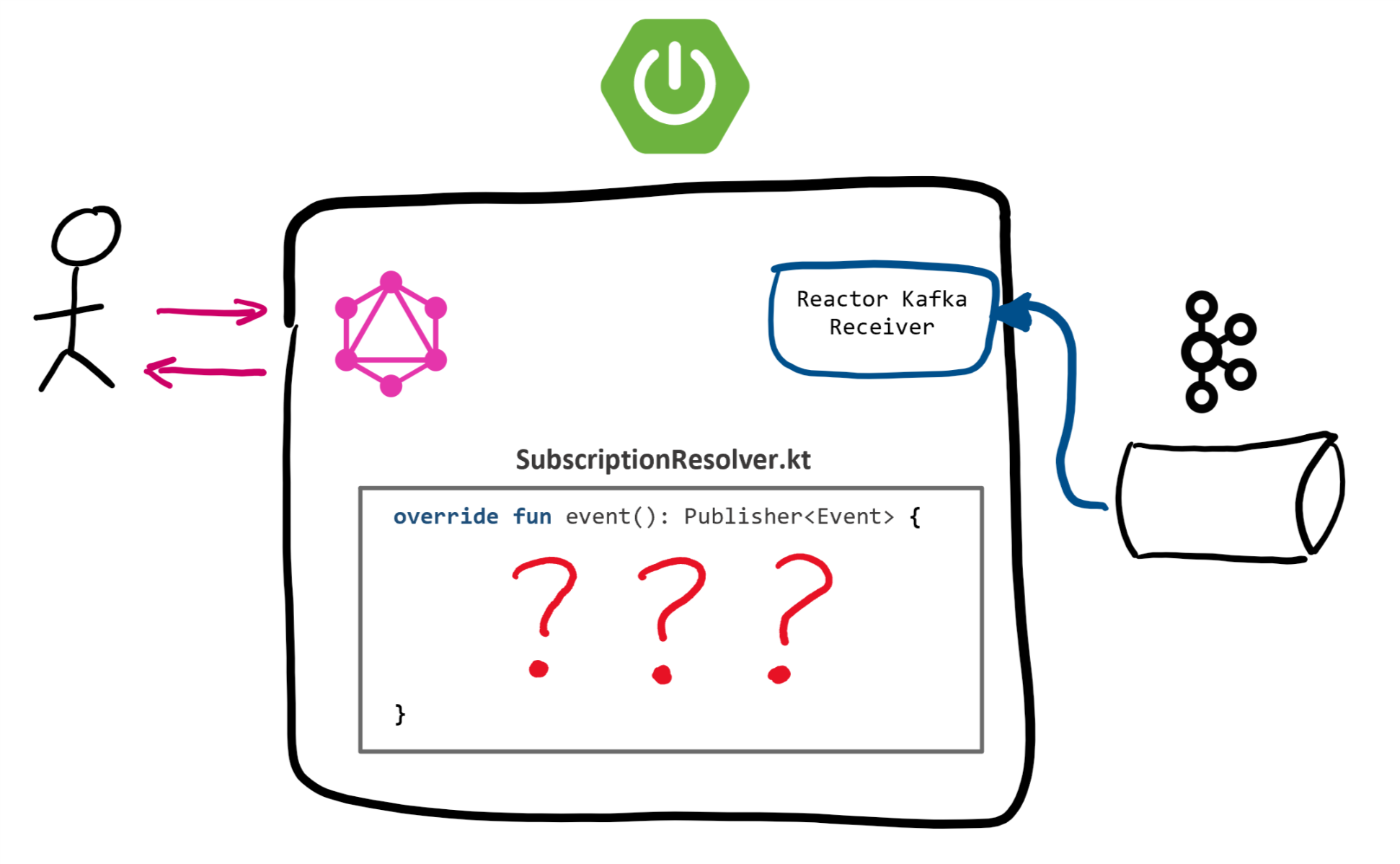Reactive GraphQL Subscriptions From Kafka
In this post I’ll be exploring how to implement GraphQL subscriptions reactively on a Spring Boot application using Kafka.
The use case
So, what are we trying to achieve? We want to provide a way for clients to get notified whenever an event occurs in the application.
The GraphQL way of doing this is through a Subscription. For the application events we’re using Kafka. So all we are trying to do is to tie those 2 things so that whenever an event pops up in Kafka all clients with an active subscription get notified.

The setup
Let’s introduce the different pieces of the puzzle:
- I have a Spring Boot application that has some business logic.
- Using
graphql-spring-boot-starterI’m exposing my service through a GraphQL API. One of those endpoints it’s going to be a Subscription endpoint. It’s schema definition looks something like this:
1 2 3 | |
- On the other end I have a Kafka topic with events that a user might be interested in. We plan to use Reactor Kafka to consume the events through a reactive stream.

So the challenge is: how do we connect all this pieces together?
Reactive all the way
To implement the resolver GraphQL Java Tools requires that we implement a function that returns a Publisher<T>. Where T is the type of event to be pushed to the subscriber. From GraphQL Java documentation:
What is special is that the initial result of a subscription query is a reactive-streams Publisher object which you need to use to get the future values.
On the other end we can use Reactor Kafka to create a reactive Receiver to consume the events from the topic. Then all that’s left is obtaining a Publisher from this receiver so that clients can subscribe to it. This is all the code we need:
Just to recap. We are creating a Kafka Receiver for the topic we care about (the topic configuration is part of the receiverOptions object, not shown in the snippet).
We are mapping the event from the Kafka model to the GraphQL model through the map() method.
Then we are turning the receiver into a hot stream by calling publish(). We are doing this because we want new subscribers to only see events that happened after they subscribed to the Publisher. And that’s exactly what publish() does. In fact if you pay close attention to the marble diagram of the method documentation you’ll notice how it looks pretty similar to our use case flow diagram.

We’re calling autoConnect() so that it connects to the upstream source as soon as the first Subscriber subscribes.
Finally we’re implementing the event function by simply returning the reference to our hot stream of events. Whenever a new client calls the Subscription endpoint GraphQL Java will subscribe to this stream and send a message for every new event that shows up in the configured Kafka topic.
